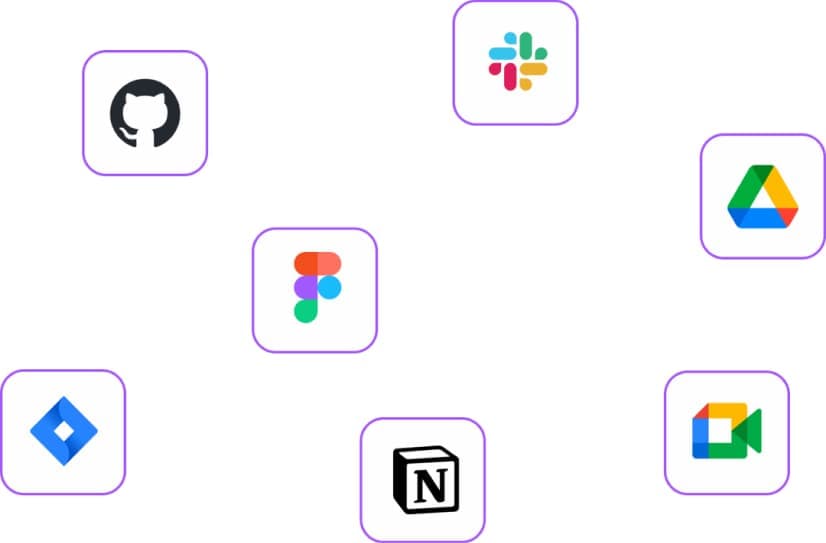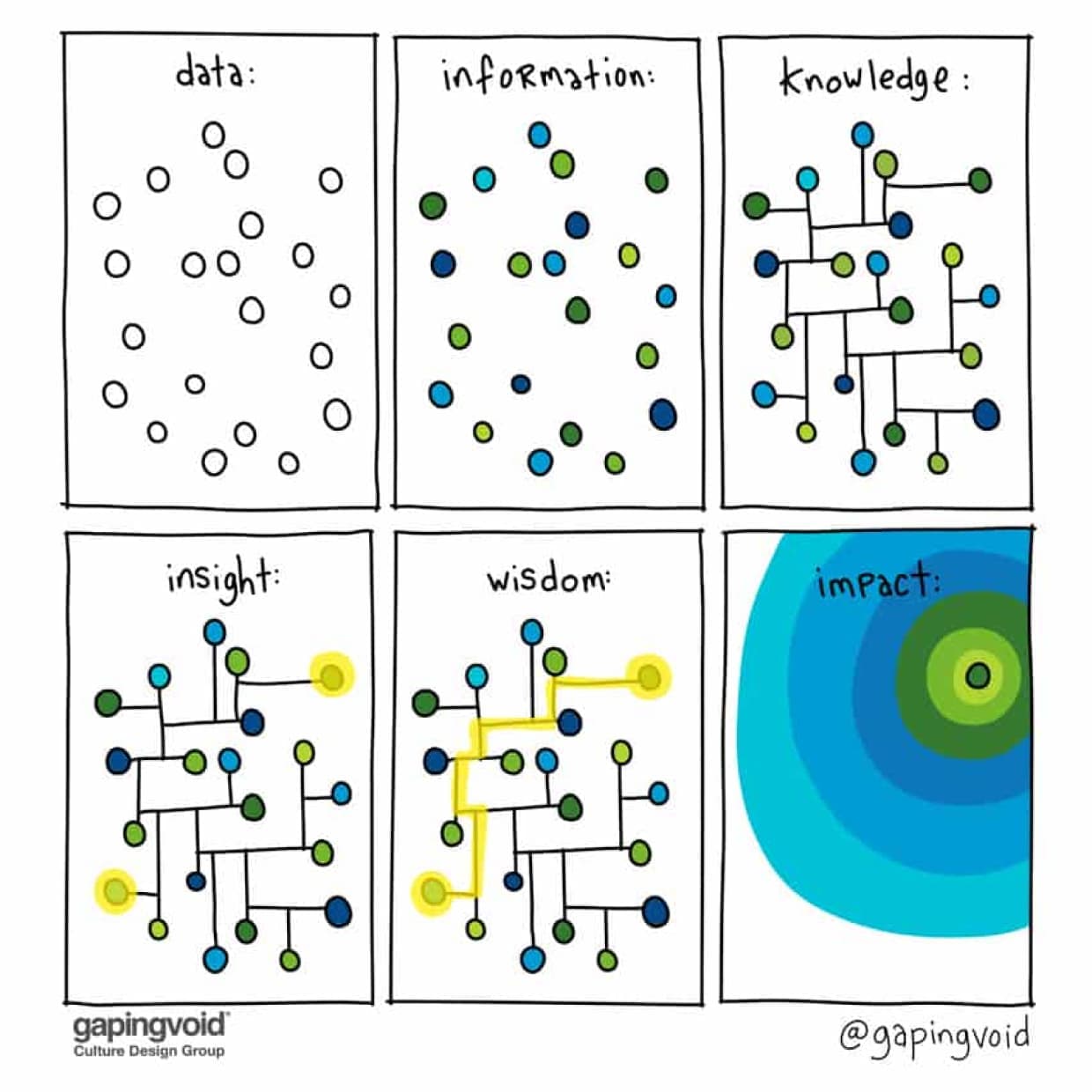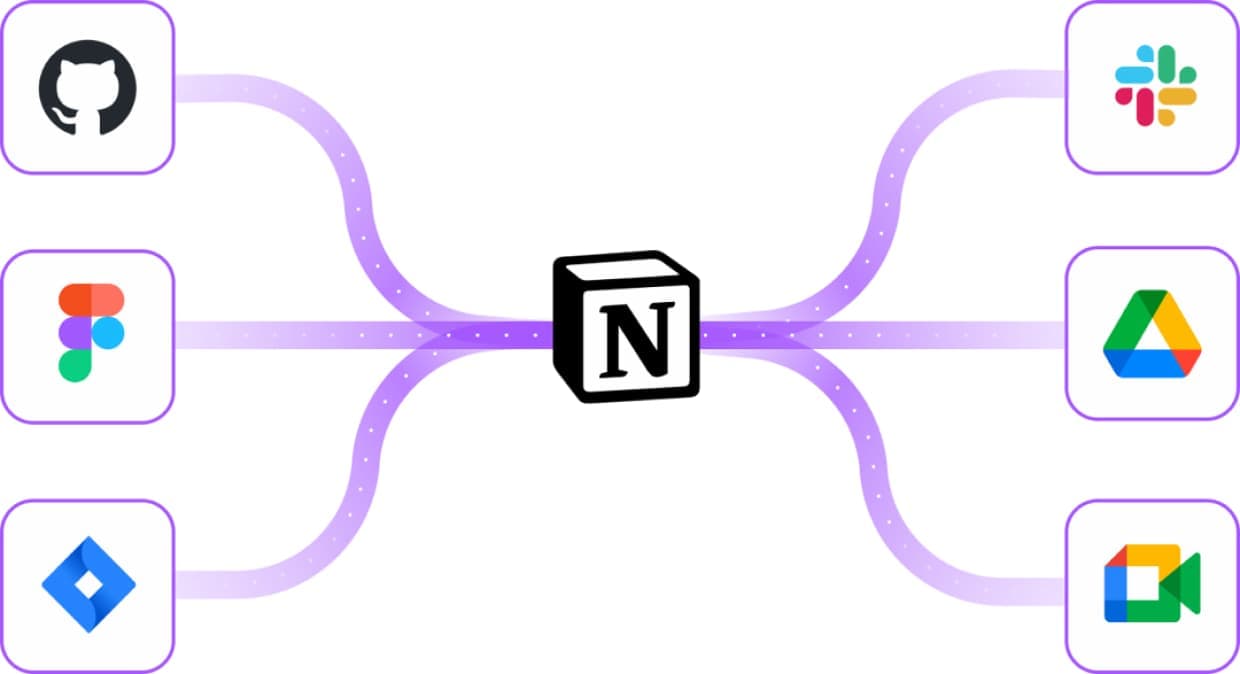
Every day, your company generates new knowledge. As time passes, your business becomes increasingly complex, making it exponentially more difficult to stay on top of the ever-growing information. Slack threads, comments on GitHub, meetings, reviews on Figma, conversations on Jira, business specs on Notion—your work history is scattered across many tools. This makes it challenging to navigate them all and get the right context at the right time.

We end up asking ourselves: How does this work? What does this business term mean? Who made that decision, when, and why?
Companies often first notice this issue when they make their initial hires. When new employees join the company, it becomes clear which information is known by everyone and which information is only known by a few people. It's common to have a “go-to person”—usually seen as a “super-employee.” This role can be gratifying and often leads to promotion due to the value of the knowledge they are owning. Yet, the company depends heavily on them, putting the business at risk if they leave.
New hires naturally rely on this person, failing to gain the knowledge themselves.
In a highly competitive tech market where companies seek rapid growth and employee turnover is a persistent challenge, businesses strive to onboard new hires quickly, all while retaining the priceless knowledge and expertise of their most skilled employees. This is crucial to avoid the potential pitfalls of losing these "super-employees" and to maintain a competitive edge.
Furthermore, companies face the real challenge of creating cross-disciplinary squads that combine diverse areas of expertise to tackle specific business challenges.
Last but not least, the COVID-19 pandemic has democratized the era of remote and hybrid work models. This shift is irreversible, as it has a positive impact not only on our professional but also on our personal lives. As a result, there is a pressing need to rethink how we work, collaborate, and share information.
Meeting these challenges necessitates strong coordination, alignment, and streamlined processes. To succeed, teams must establish a unified source of information, which centralizes and structures knowledge across the company, thereby enabling them to have a more significant impact.

Most companies are successfully executing the first two steps but struggle when it comes to the third: enabling their employees to become vital contributors. They encounter difficulties in empowering individuals to attain the requisite knowledge level, which restricts their engagement and limits their overall impact.
On the other hand, companies that successfully tackle these challenges can not only attract top talent but also retain their top performers. Such companies allow each individual to realize their full potential and pursue greater growth opportunities.
So, how to properly structure & scale knowledge?
We have asked ourselves this question every time we worked in a new company for the last 10 years. We conclude that creating and spreading knowledge is hard. There is no silver bullet, and success typically requires the effective implementation of a variety of different methodologies and processes.
However, we have learned that some practices help teams start operating more consciously and properly about knowledge. Practices that make teams fall into the pit of success.
By applying them, the teams we have worked with have been able to onboard more quickly, collaborate efficiently asynchronously & across different time zones, establish a culture of ownership, eliminate silos between departments, and ultimately achieve greater productivity.

1. Decision records
They are the place for the team to find historical context. They should encapsulate in the most atomic possible way all the factors that lead to deciding at a given time.
They should be written by one person in your team, usually, the one that has led the decision, and reviewed by somebody else in the same team. Both these people become the authors of the record.
Finally, a decision record should never be updated. If they ever become outdated because of a new decision that supersets them, you should create a new decision record and add a link to it on the old one at the start of the page.
2. Standards
They are the representation of the team's know-how. Usually, in the shape of steps or bullet points, they are the opinionated living state of knowledge about a concrete topic of your business.
They go through three different states: draft, live, and outdated. When first created, they will sit on the draft state until the related knowledge becomes relevant to the business. At that moment, they will transition to the live state. Last, whenever something on the business changes making them outdated, it is important to mark them at the top of the page as outdated + the reason and prioritize some time for the owner team to update it when it makes sense.
Finally, they may reference decision records to support their arguments. You should aim them to be as atomic as possible just like decision records.
Both decision records and standards are transversal to every team in your company. Your tech team can adopt them. Your sales team can adopt them. Of course, the way each of these teams will hook them into their day-to-day work may be very different. But, you want all teams to share their decision records and standards on a single platform. You want the whole company to build a “Knowledge hub”. Its true power will be unveiled when people across teams and departments can just find and discover whatever knowledge in the company they need.
